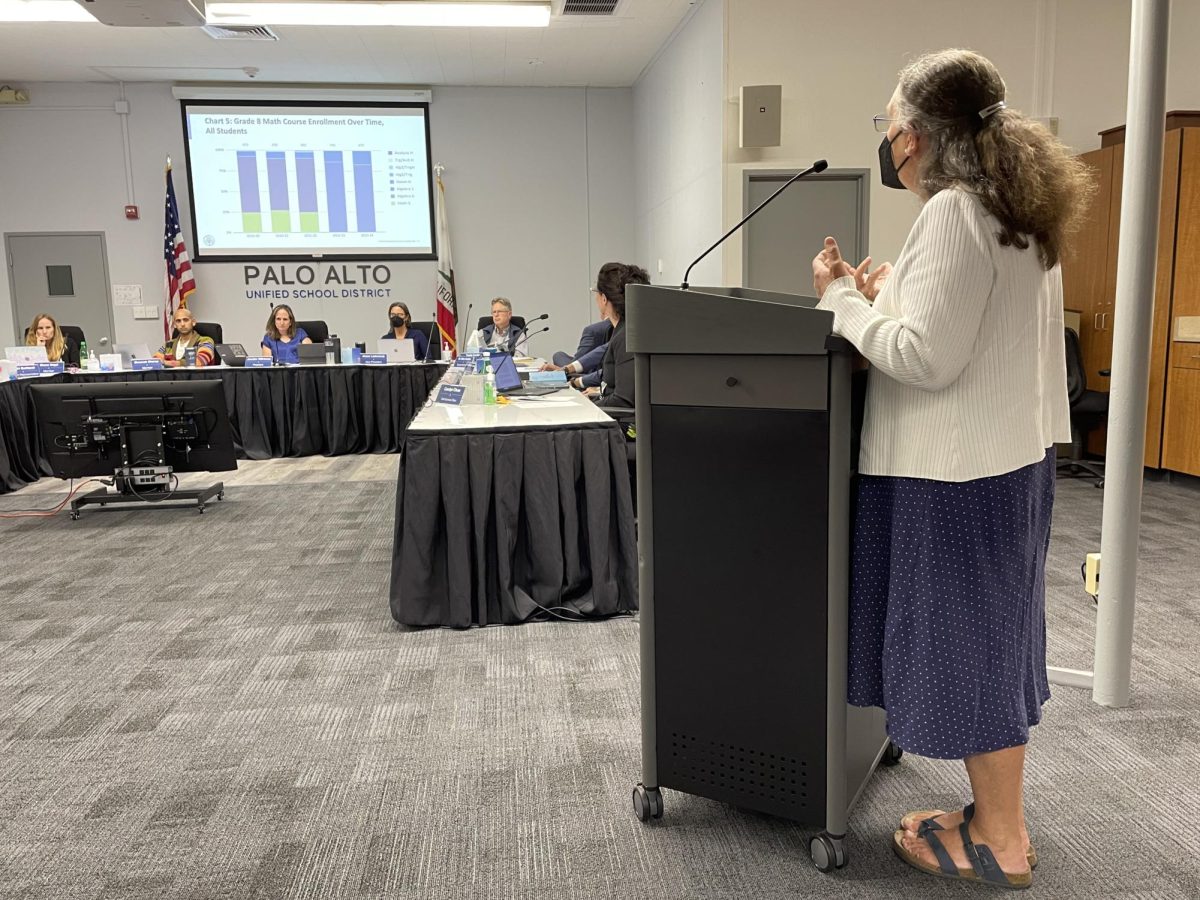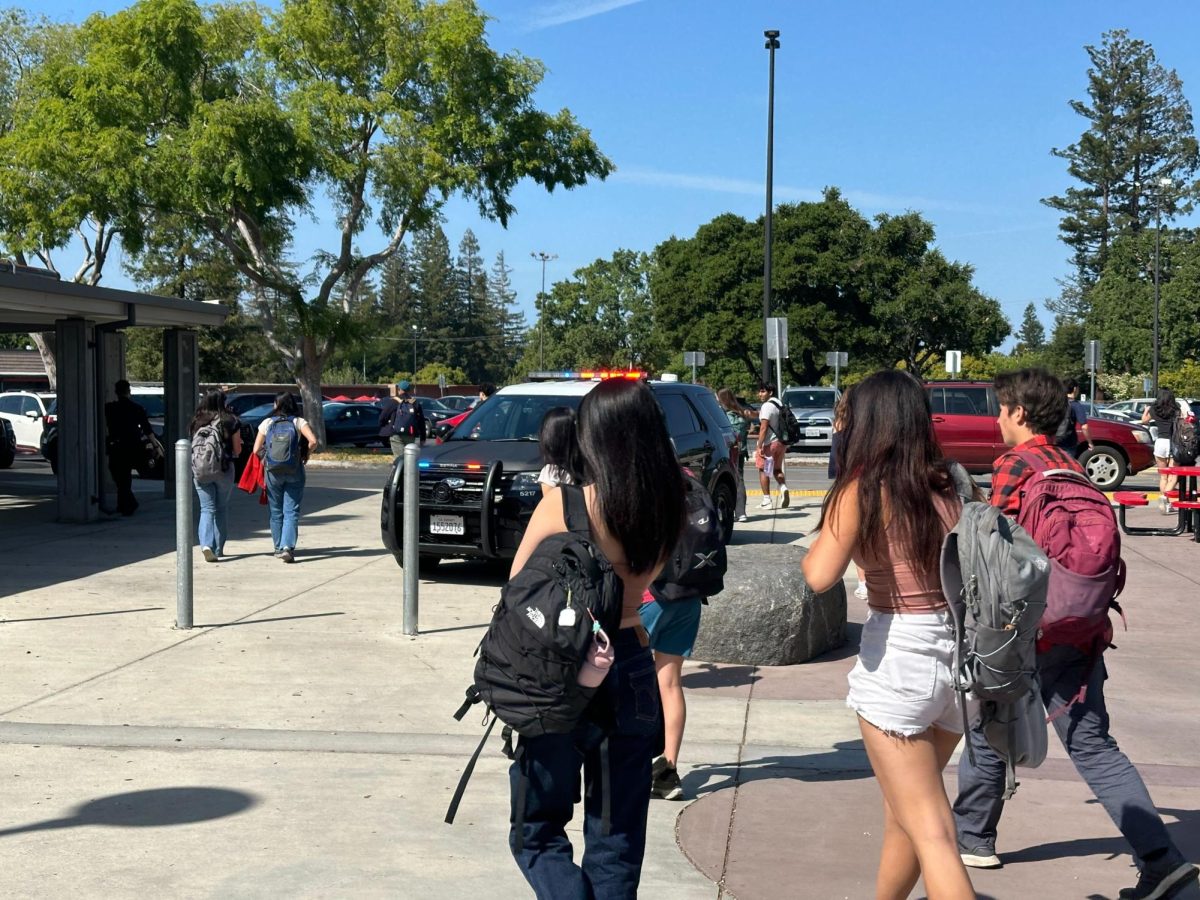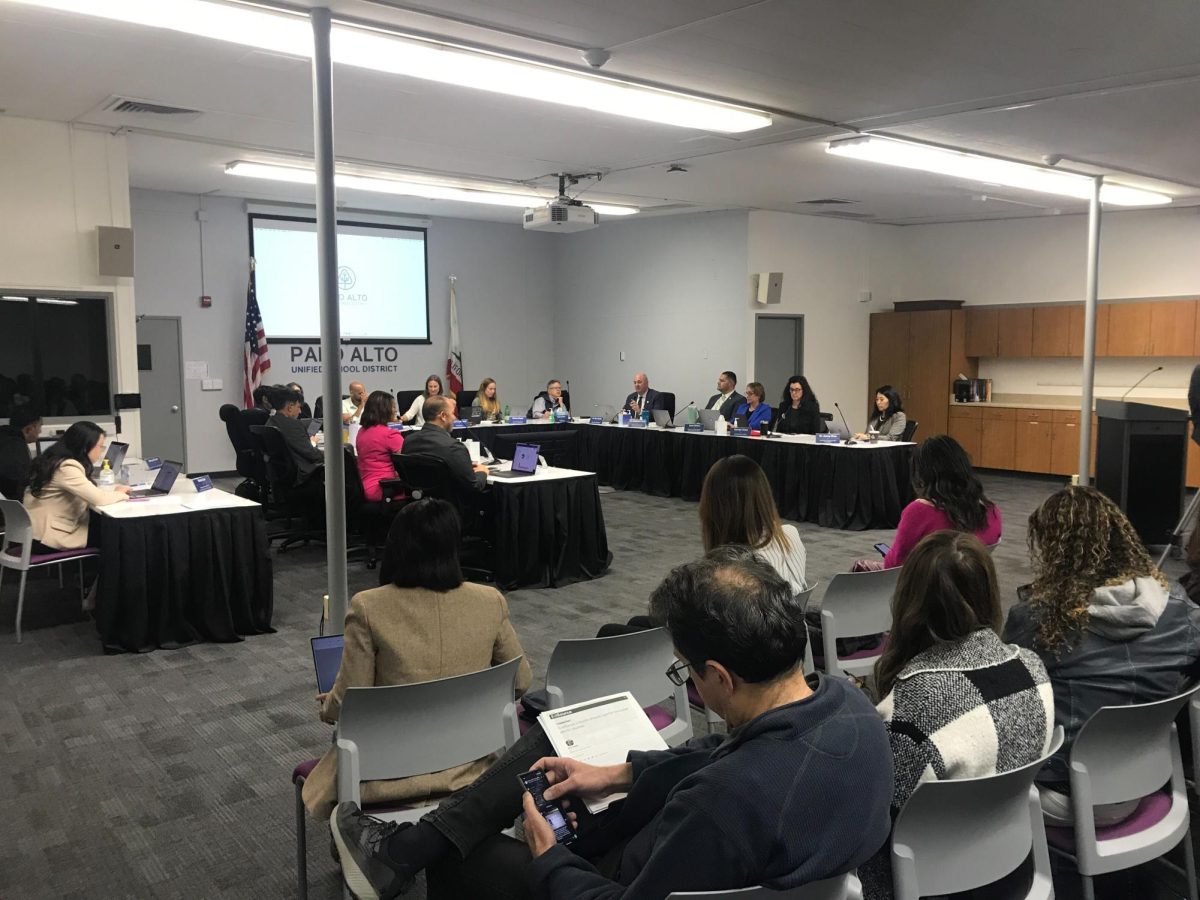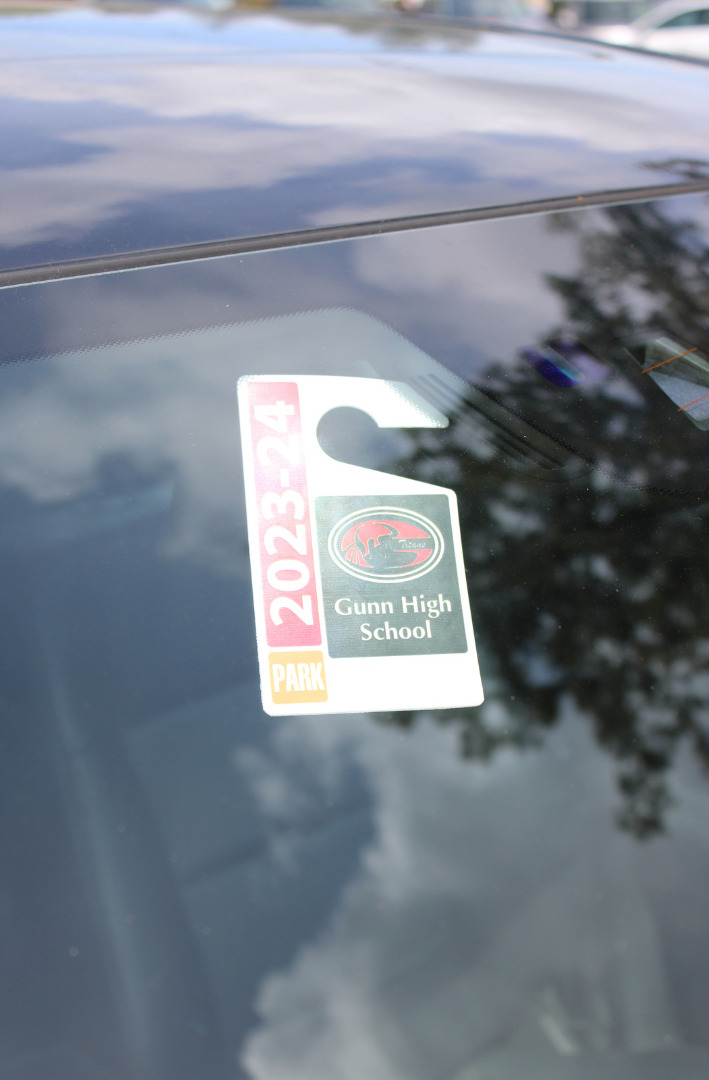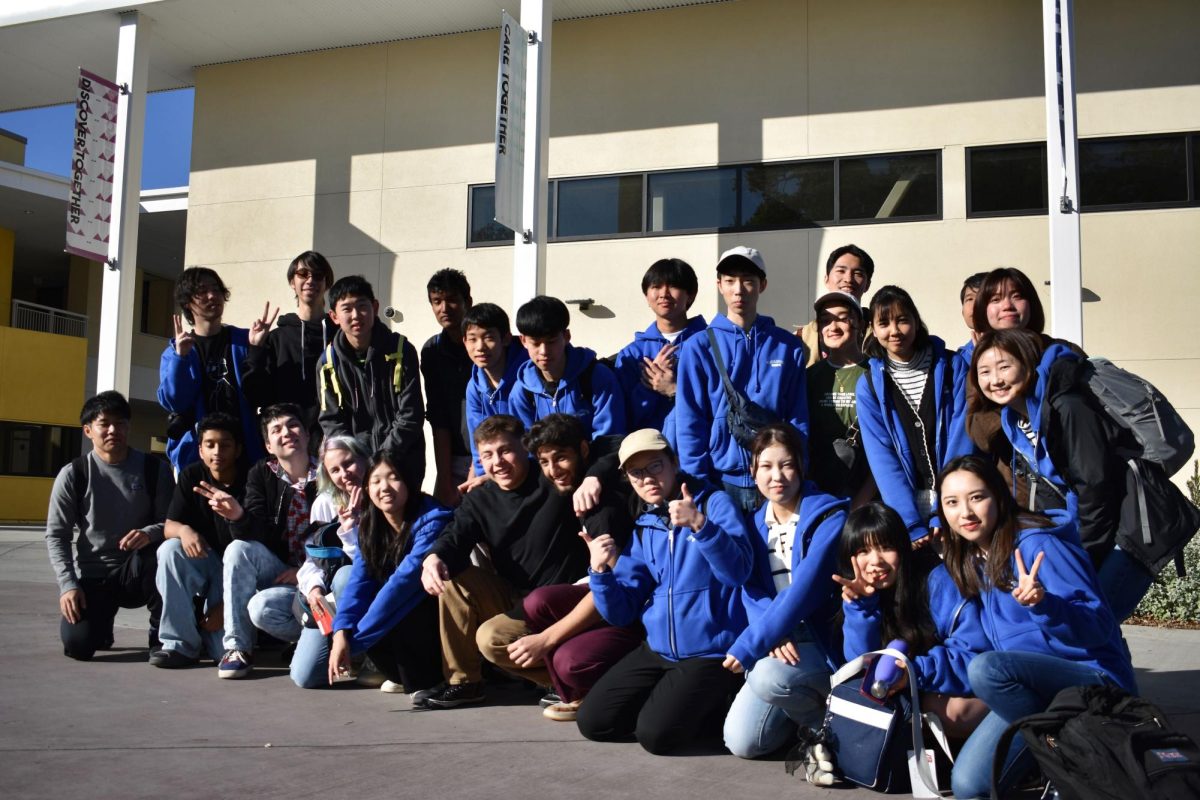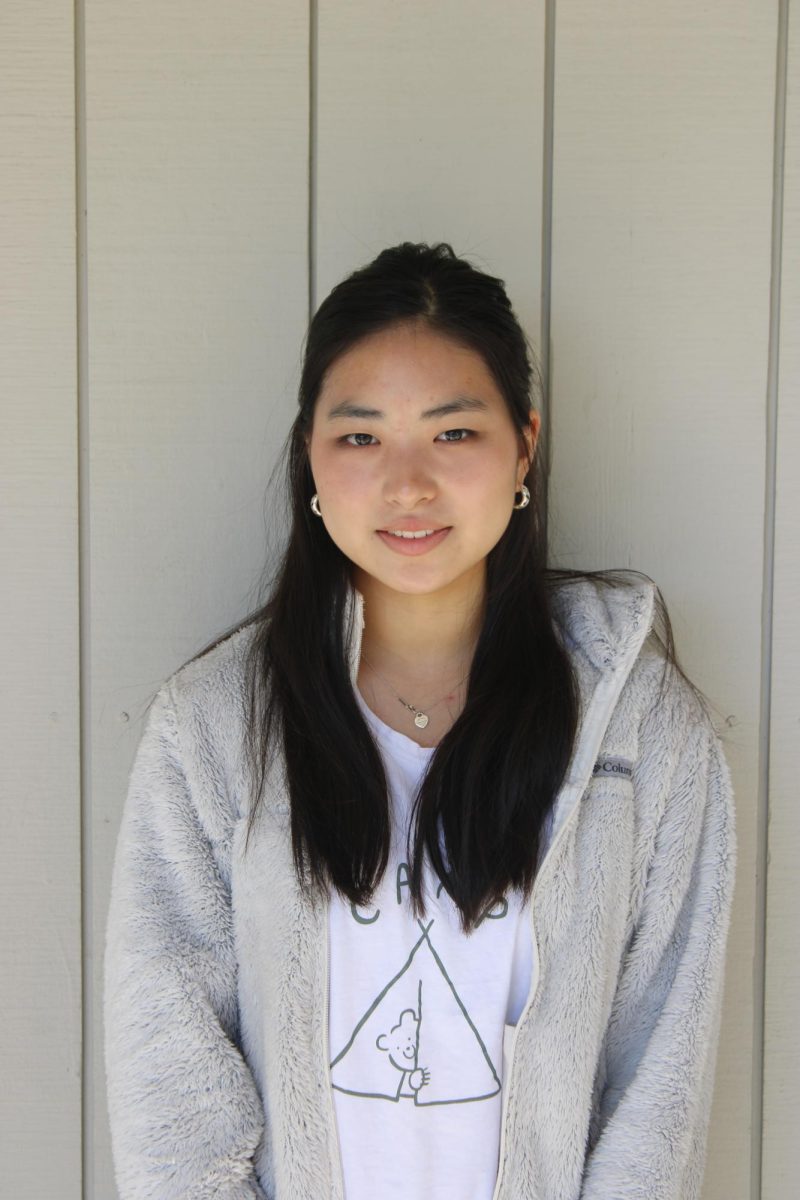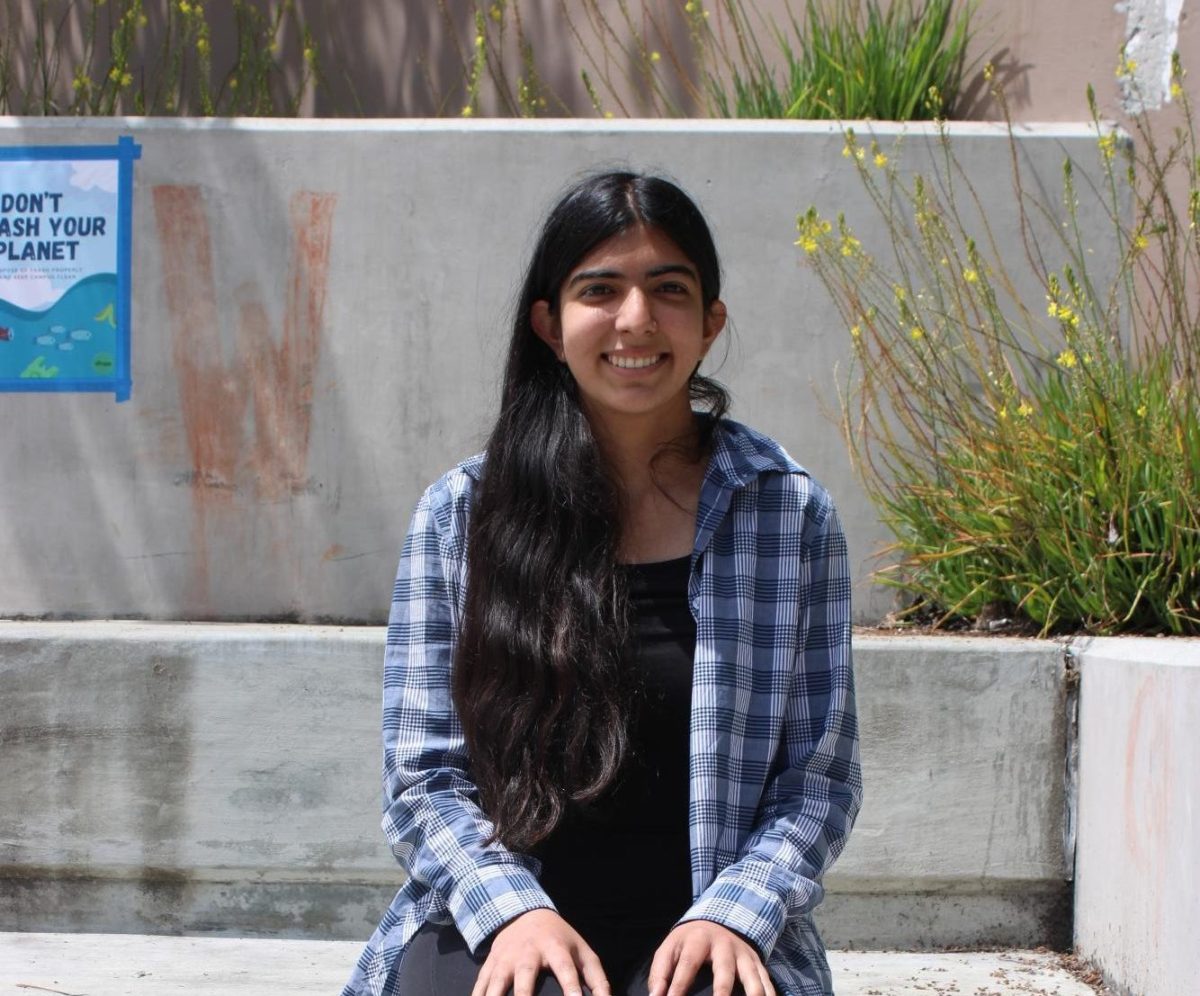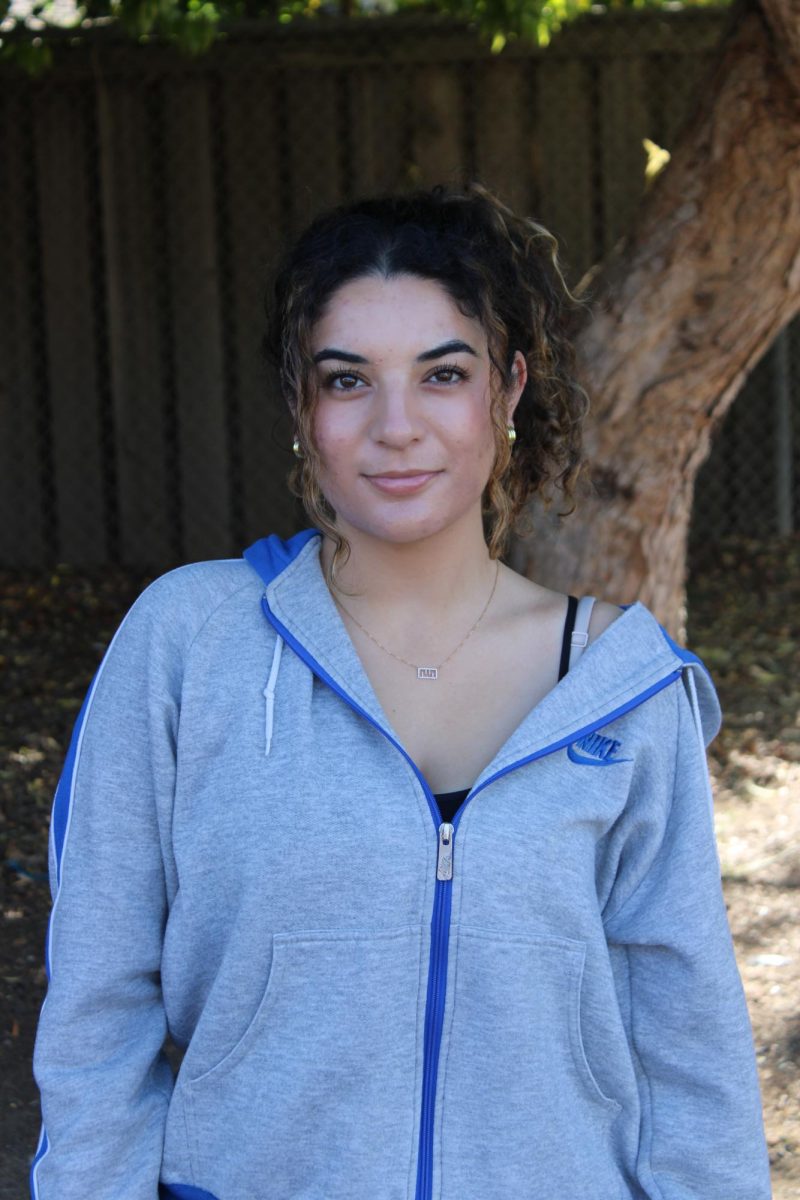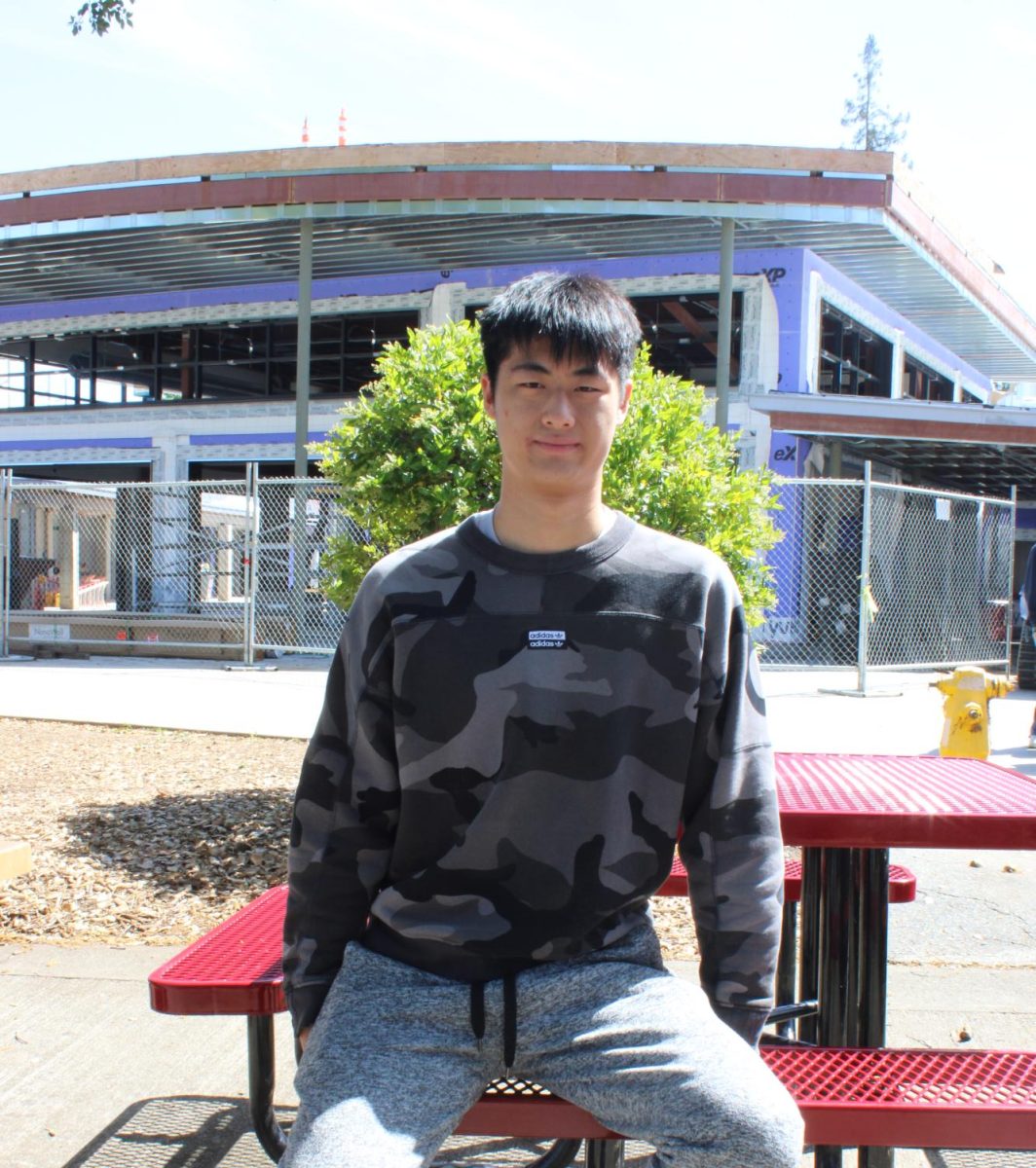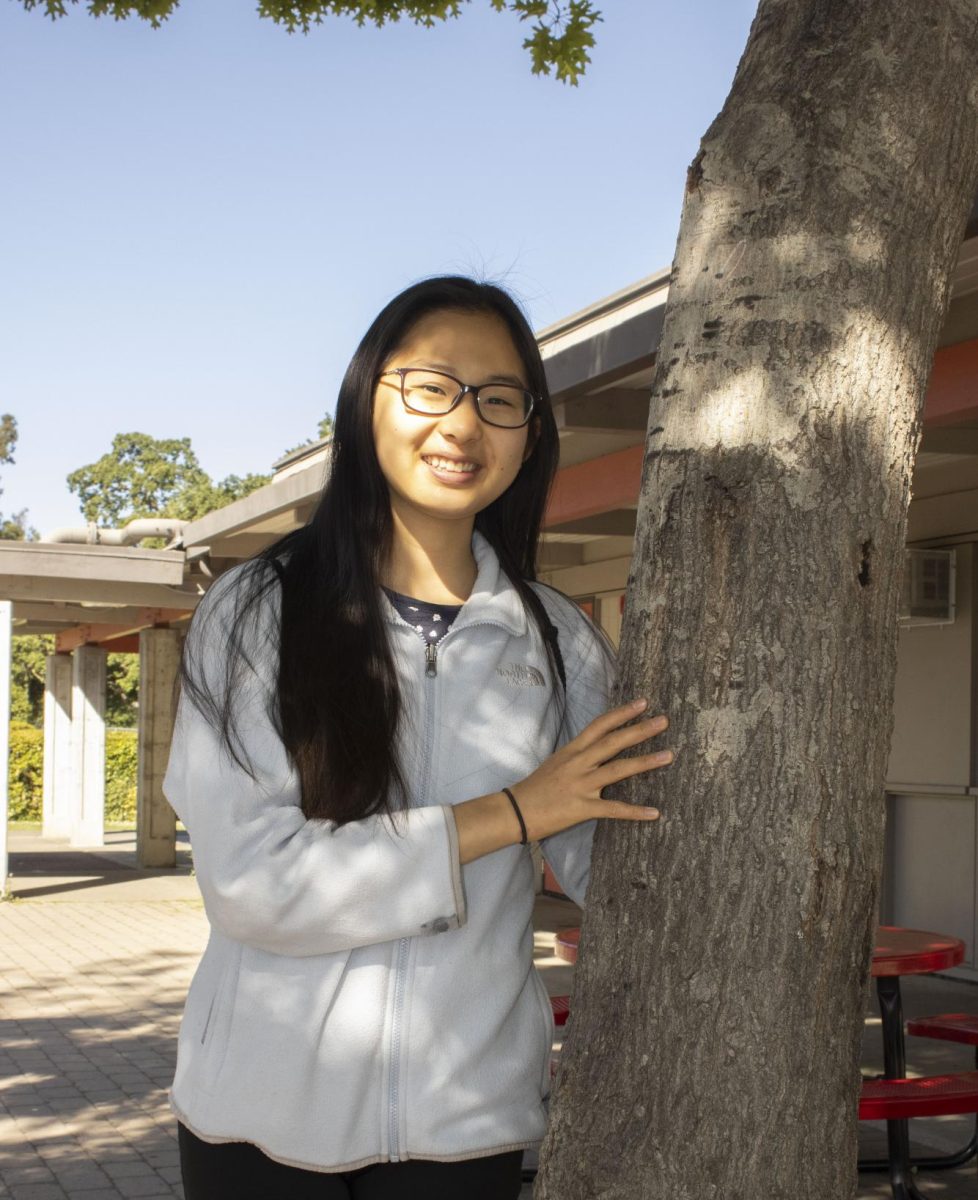Accelerated math lanes, part of the Reimagining Middle School Mathematics program, were a prominent topic in this week’s board meeting. Continuing ongoing discussion about multivariable calculus offerings by PAUSD, students also voiced concerns about current options and requested changes.
During Open Forum, in which student and parent speakers were each allocated one minute to make a statement, 19 students in a “speaker chain” and two others shared their opinions regarding multivariable calculus and lane acceleration. Comments centered on the district’s handling of multivariable calculus offerings at the high school level. The conversation expanded, however, into scrutiny of the district’s inclusion of student voices in curriculum debates.
Students advocated greater data transparency within the district, more lenient and less opaque lane-acceleration policies, increased student voice and visibility, and greater administrator willingness to work with students on future math-related issues.
Students are genuinely interested in having a multivariable calculus class and having opportunities to accelerate, (which) the Board hasn’t been addressing effectively.
— Senior Ezra Furtado-Tiwari
During the meeting, Assistant Superintendent of Secondary Education Dr. Guillermo Lopez reaffirmed that Advanced Placement Calculus BC is, and will remain, the highest-level math class taught by PAUSD teachers on high school campuses.
According to senior Ezra Furtado-Tiwari, the student advocates’ goal was to improve student-district relations to lay the groundwork for more concrete changes to the course next year. “Students are genuinely interested in having a multivariable calculus class and having opportunities to accelerate, (which) the Board hasn’t been addressing effectively,” he said. “(We’re looking for) at least a concerted attempt (from the district) to see if multivariable calculus could be offered as a class through Gunn or Paly (next year).”
Students continued to discuss multivariable calculus and acceleration policies during the public-comment portion of the Reimagining Middle School Mathematics update. This resumption prompted Board President Jennifer DiBrienza to redirect the comments toward middle school math. “That series of comments was not about middle school math, and I should have cut it off,” she said during the school-board meeting.
The discussion item itself referred to the 2019 district decision to “delane” middle school math, making Algebra I the standard course for eighth-grade students and Geometry the standard for ninth-grade students. Board members discussed data from the first Reimagining Math cohort, which has just entered ninth grade. Rather than determining whether Reimagining Math would continue to be the math standard, board members aimed to analyze the cohort’s performance for the first time, according to Fletcher Middle School Math Instructional Lead Becky Rea. “I think it’s too early to declare it an actual success or failure, but it’s good to look back on what we’re doing,” she said. “I do think we’re going to have to make the decision to look at it repeatedly as kids move through high school.”
During the comment portion of this discussion item, a parent brought up concerns about the lane reductions in the middle schools as a result of the Reimagining Mathematics program. “My eighth-grader now could use a slower math and is really struggling,” she said. “And there isn’t enough support for him. Also, (he) hears so many comments in class of kids going, ‘Oh, this is so easy’ … (This) really affects him, and there’s really just no other options at this school.”
Overall trends for the Class of 2027 from school board records show increased enrollment in Geometry or higher-level courses for Hispanic/Latino students, Black students and students with disabilities in ninth grade. Board Vice President Jesse Ladomirak, however, cautioned against using enrollment rates as the sole barometer for success. “No one in this room, and certainly not in this Board, thinks that just getting kids into Geometry is sufficient,” she said. “We obviously have to make sure that they succeed when they’re there, … (but) we don’t have enough data to know that right now. We can’t solve that problem tonight — we can’t even identify if we have a problem to solve right now.”
I think it’s too early to declare (the Reimagining Middle School Mathematics program) an actual success or failure, but it’s good to look back on what we’re doing.
— Fletcher Middle School Math Instructional Lead Becky Rea
Moving forward, the future of Reimagining Math will depend on conclusions drawn from review of student data. Aiming to be proactive on this front, board member Shounak Dharap proposed forming an ad hoc committee in January after the release of first-semester data for the ninth-graders, a proposal supported by board member Todd Collins. “(We would plan) to talk about the data, to dig into it, to really see, ‘Is this working? Is it not working? What are the tweaks?’” Dharap said. “And have check-ins, … making sure we are always being true to the purpose, which was keeping high expectations for all of our students.”


